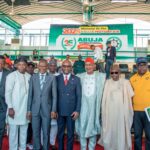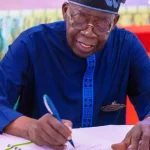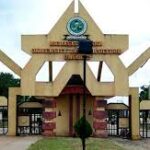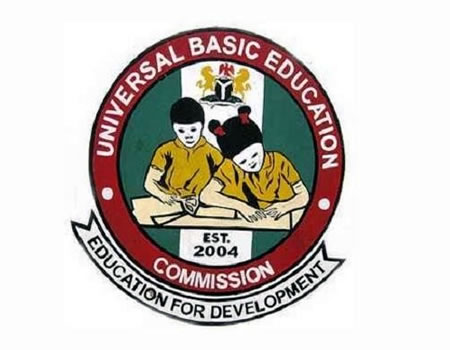The Universal Basic Education Commission (UBEC), has reaffirmed the Federal Government’s commitment to inclusive education and the empowerment of girls, including those with disabilities.
The Executive Secretary, UBEC, Aisha Garba disclosed this during the commemoration of the 2025 International Day of the Girl-Child in Abuja on Thursday.
Speaking at the event themed “Lead a Change: Learn Sign Language Today,” Garba described the celebration as an opportunity to renew national commitment to ensuring that every girl, regardless of ability, is seen, heard, and empowered to lead change.
She emphasised that the Renewed Hope Agenda of the federal government continued to prioritise education and empowerment of the girl-child, citing the migration of the LUMINAH Project to UBEC as a testament to collaborative the efforts.
Highlighting the Commission’s inclusive education initiatives, the UBEC boss revealed that a policy had been instituted to institutionalise the teaching and learning of sign language across all basic education schools in Nigeria.
“Imagine a country where hospitals, banks, supermarkets, airports, and schools have sign language interpreters, then you will have a system without communication barriers for our hearing-impaired children.
“That is the vision we are working towards, one school, one change at a time,” she said.
Garba further said that UBEC’s school restructuring policy now mandates accessibility structures such as ramps to ensure that children with physical disabilities move with dignity and ease.
According to her, the Commission is also investing in teacher training and digital learning tools tailored to the needs of children with special needs.
This, she said was in collaboration with the National Primary Health Care Development Agency (NPHCDA).
The executive secretary reiterated UBEC’s stance on child safety, announcing that bullying had been outlawed in all basic education schools.
She added that child protection mechanisms were being reinforced to ensure schools remain safe spaces for learning and personal growth.
“No girl should suffer in silence or face abuse, especially one with reduced ability to cry out,” she stated.
Corroborating UBEC’s executive secretary, the Minister of State for Education, Prof. Suwaiba Ahmad, called on stakeholders to remove barriers to learning and ensure that every girl has a voice and equal opportunity to thrive.
Ahmad commended UBEC for its efforts to ensure that all Nigerian children have access to free, compulsory, and quality basic education, and for its expanding programmes in inclusive learning.
She also stressed that sign language should become a key tool in bridging communication gaps within classrooms across the country.
“Sign language is a bridge, not a barrier. It connects minds, shapes friendships, and unlocks futures.
“We must train more interpreters, integrate sign language into teacher training curricula, and equip classrooms for visual-gestural communication.
“When a student can express themselves and be understood, classrooms become laboratories of confidence, collaboration, and creativity,” she said.
The Minister further called for policy alignment, coordinated funding, and synchronised programmes across all levels of government to ensure that girls, especially those with disabilities move seamlessly from primary education to higher levels of learning and vocational opportunities.
She acknowledged the persistent challenges many girls still face, including poverty, stigma, and safety concerns, while urging continued collective action to dismantle these barriers.
“While progress has been made, many girls still face obstacles.
“Today, we choose to lead change again and again by learning, by listening, and by acting together,” she said.











